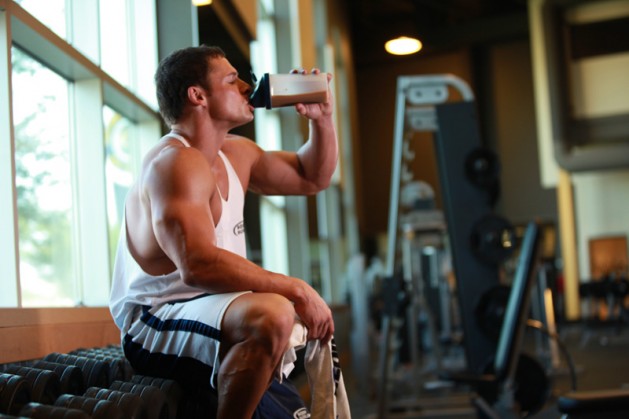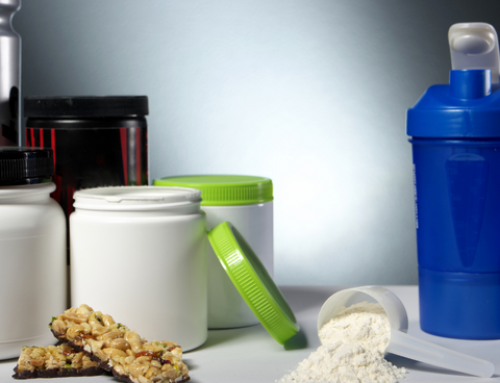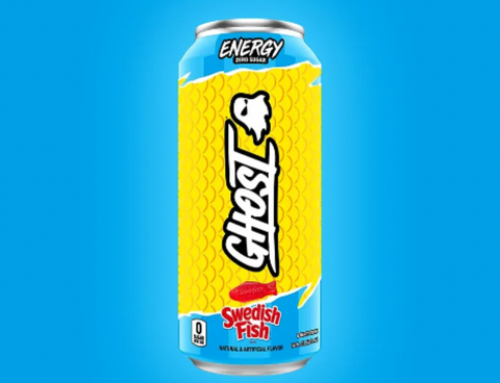Top Workout Supplements
Supplements are a huge topic of debate in the fitness industry, and rightfully so—they have become a billion dollar industry. As the name implies, supplements are meant to “supplement” your diet, not replace nutrients from food. No workout supplement is necessary to achieve performance gains, but their easy-to-consume nature and exact dosage can help you achieve your performance goals. The following are some of the world’s best workout supplements. Learn more through STACK’s Supplement Guide.
Protein Powder
With the exception of caffeine, protein powder is probably the most widely used workout supplement. It’s available in almost any food store, and it produces no side effects except for the occasional bad-tasting shake. The amino acids in protein are used to build and repair muscles, particularly after a workout. Three types of protein have different effects on the body:
Whey Protein
Pros: Fast acting, usually better tasting and relatively inexpensive
Cons: Many whey supplements also contain a high amount carbs and sugars, and also a moderate amount of fat
Whey Isolate
Pros: Basically the same as whey protein, but has no added sugars, carbs or fat
Cons: Usually doesn’t taste as good as regular whey and can be more expensive
Casein Protein
Pros: Slow digesting protein, great to take before bed to prevent muscle breakdown when you sleep
Cons: A poor option post-workout because it breaks down slowly; typically rather expensive
BCAAs
As I stated earlier, amino acids are the building blocks of proteins. Branch Chain Amino Acids (BCAAs) include leucine, isoleucine and valine, which are different from other amino acids and are thought to help build more muscle. Although they provide an excellent muscle-building boost, they are not necessary if you are eating enough protein—25 percent of your diet—each day.
Pre-Workout
When pre-workout supplements came on the market, they were thought to be the best supplements ever invented. Their goal was to boost energy to improve the quality of your workout. Most do so effectively by providing fast-acting carbs, caffeine and beta alanine. However, some have “proprietary blends” that may not provide the dosage needed to be effective. Be cautious of any supplement that has this moniker on its label.
Creatine Monohydrate
This is another workout supplement that has been widely tested and criticized for many years. When creatine first came out, it was considered dangerous; however, after extensive research, it was proven to be safe for increasing strength, size and power. The only downsides are that it increases water retention, and you may lose size when you go off it.
Creatine is not effective if the muscle is not saturated. That’s why most creatine products recommend two phases: the loading phase and the maintenance phase. The loading phase usually involves taking a higher dose (about 25 grams per day) for five to 10 days. The maintenance phase calls for three to five grams per day after that.
If you have any questions about supplements or anything not covered in this article, feel free to contact me at [email protected].
Photo: Bodybuilding.com
RECOMMENDED FOR YOU
MOST POPULAR
Top Workout Supplements
Supplements are a huge topic of debate in the fitness industry, and rightfully so—they have become a billion dollar industry. As the name implies, supplements are meant to “supplement” your diet, not replace nutrients from food. No workout supplement is necessary to achieve performance gains, but their easy-to-consume nature and exact dosage can help you achieve your performance goals. The following are some of the world’s best workout supplements. Learn more through STACK’s Supplement Guide.
Protein Powder
With the exception of caffeine, protein powder is probably the most widely used workout supplement. It’s available in almost any food store, and it produces no side effects except for the occasional bad-tasting shake. The amino acids in protein are used to build and repair muscles, particularly after a workout. Three types of protein have different effects on the body:
Whey Protein
Pros: Fast acting, usually better tasting and relatively inexpensive
Cons: Many whey supplements also contain a high amount carbs and sugars, and also a moderate amount of fat
Whey Isolate
Pros: Basically the same as whey protein, but has no added sugars, carbs or fat
Cons: Usually doesn’t taste as good as regular whey and can be more expensive
Casein Protein
Pros: Slow digesting protein, great to take before bed to prevent muscle breakdown when you sleep
Cons: A poor option post-workout because it breaks down slowly; typically rather expensive
BCAAs
As I stated earlier, amino acids are the building blocks of proteins. Branch Chain Amino Acids (BCAAs) include leucine, isoleucine and valine, which are different from other amino acids and are thought to help build more muscle. Although they provide an excellent muscle-building boost, they are not necessary if you are eating enough protein—25 percent of your diet—each day.
Pre-Workout
When pre-workout supplements came on the market, they were thought to be the best supplements ever invented. Their goal was to boost energy to improve the quality of your workout. Most do so effectively by providing fast-acting carbs, caffeine and beta alanine. However, some have “proprietary blends” that may not provide the dosage needed to be effective. Be cautious of any supplement that has this moniker on its label.
Creatine Monohydrate
This is another workout supplement that has been widely tested and criticized for many years. When creatine first came out, it was considered dangerous; however, after extensive research, it was proven to be safe for increasing strength, size and power. The only downsides are that it increases water retention, and you may lose size when you go off it.
Creatine is not effective if the muscle is not saturated. That’s why most creatine products recommend two phases: the loading phase and the maintenance phase. The loading phase usually involves taking a higher dose (about 25 grams per day) for five to 10 days. The maintenance phase calls for three to five grams per day after that.
If you have any questions about supplements or anything not covered in this article, feel free to contact me at [email protected].
Photo: Bodybuilding.com










